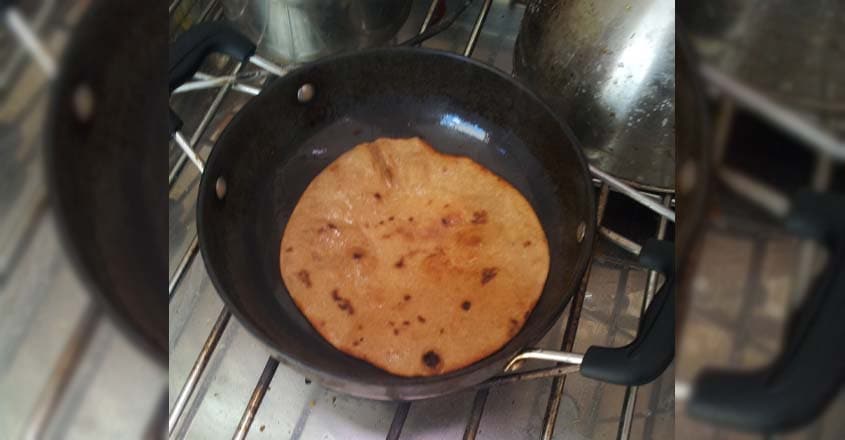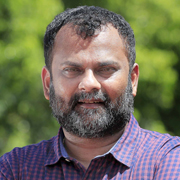When Cdr Abhilash Tomy celebrated rounding Cape Horn with DFRL chicken biryani

Mail This Article
Bengaluru: Seven years after he first undertook a solo, non-stop circumnavigation of the world under sail, Cdr Abhilash Tomy of the Indian Navy reveals a bit of what kept him inspired, appetite-wise.
Did food give him the magical boost when the going got tough? In an interview with Onmanorama, Cdr Abhilash Tomy was all praise for the Mysuru-based Defence Food Research Laboratory (DFRL), pioneers in developing ready-to-eat (RTE) meals for the armed forces.
He said food had a definite psychological impact during missions, and he often celebrated various milestones by opening a DFRL food packet, which was delicious and different. All this was during his historic Sagar Parikrama-II mission, onboard sailboat INSV Mhadei.
The Sagar Parikrama-II saga started from the Gateway of India on November 1, 2012, and ended on April 6, 2013, making Cdr Abhilash the first Indian to undertake an unassisted and non-stop sea mission. Incidentally, he crossed the Equator twice during this voyage.
Variety of food
Cdr Abhilash said he took a variety of food with him on the mission. “There was fresh food that lasted for about a month. This included fruits, and vegetables such as potatoes, tomatoes and onions. There was no refrigeration on the boat. I used to cook and eat food such as rice. Pickles came handy,” he said.

In addition, he carried a lot of snacks in the form of potato wafers, peanuts, popcorn and cakes. There were freeze-dried foods, powdered milk, muesli, rusk and biscuits as well. He also had a choice of canned food such as sardines, fruits and corn.
"The RTE food from DFRL was exceptional. They were kind enough to give me 150 packets of their food gratis for the voyage. I can vouch for the DFRL stuff. It is tasty," Cdr Abhilash said.
During the voyage that lasted 151 days (the initial plan pan was for 180 days), he wasn't allowed to pick up stocks or any other stuff on the way.
"The voyage was supposed to be a non-stop, unassisted circumnavigation, and there were several rules at play," he said.
Recalling the DFRL menu, the top sailor said the chicken biryani, rotis, chicken and vegetable curries, pulao and sweets were exceptional.
“What really stood out in the DFRL platter was the taste —which was very Indian. Freeze-dried food that I carried was very lightweight, packed more calories and was long-lasting, but it was difficult to get used to the taste. On the other hand, the DFRL dishes kept me going due to the taste. Imagine having chicken biryani after 86 days at sea! That's how I celebrated rounding Cape Horn,” Cdr Abhilash, a recipient of Kirti Chakra, said.
Milestone Moments
He used DFRL food at various points to celebrate milestones.
"As I told you, I opened a packet of chicken biryani right after rounding Cape Horn. That was after having sailed 12,000 nautical miles. Everything was delicious. I don’t have any complaints about anything except the rasam, which was too spicy and gave me stomach upsets," he said.
In addition to the DFRL stock, Cdr Abhilash thrived on snacks, energy bars, canned tuna, sardines and fruits. He generally had the canned tuna and sardines with rice which he cooked on board.
“I also had shark pickles from my grandfather’s village. My brother sent across 100 packets of freeze-dried food from New Zealand, which was developed for astronauts. It is very light weight and one needs to just add some warm water to make it edible,” he said.
From his mother’s kitchen, the sailor carried a lot of banana chips and pickles during both Sagar Parikrama-II and the famous Golden Globe Race (GGR) of 2018.
However, the sailor missed carrying DFRL food during the GGR.
When asked about the food and hunger patterns during solo missions, Cdr Abhilash said while sailing solo the body needs about 4,000 calories every day.
“It is difficult to eat that much, but one somehow needs to push all that food into the body every day. It is difficult, and you don’t feel hungry so often because the act of eating food is a social activity. When one has people around, it is easy to eat a lot. Coupled with the fact that the motion of the boat in the sea causes a lot of discomfort and nausea, it gets even more difficult to eat. One needs to be intelligent about it and keep snacking all day so that the body meets its energy requirements,” he said.
He recalled losing about one kilogram on an average every three days and said finally his weight stabilized close to 72-73 kg.
Psychological Impact
Does food have a psychological impact on you? Do the smell and taste of it lift your spirits?
“Yes it does!” agreed Cdr Abhilash. “Food has a psychological effect. DFRL food had a huge positive impact on psychology because of its taste. In fact, I used to save some of my favourite DFRL foods to celebrate even after some heavy work.”
The ace sailor provided food for thought on a few areas which Indian scientists need to work upon to improve the quality, taste and shelf life of RTE meals.
“Other than DFRL food, all MRE (Meal, Ready-to-Eat) packets made in India have a distinct taste of preservatives that puts you off after having them a few times. Maybe they should work on that. Also, it would be nice to see more non-vegetarian options as well,” he said.
Finally, what’s cooking Cdr Abhilash Tomy? Is he planning another mission?
“Well… Wait and SEA,” he laughed.
(The writer is an independent aerospace and defence journalist, who blogs at Tarmak007 and tweets @writetake)


